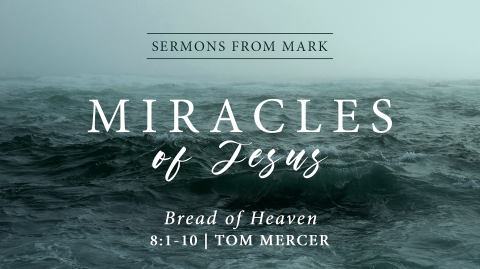
Prepare for Sunday morning worship by using the guide below.
Mark 5:21-43
21 And when Jesus had crossed again in the boat to the other side, a great crowd gathered about him, and he was beside the sea. 22 Then came one of the rulers of the synagogue, Jairus by name, and seeing him, he fell at his feet 23 and implored him earnestly, saying, “My little daughter is at the point of death. Come and lay your hands on her, so that she may be made well and live.” 24 And he went with him.
And a great crowd followed him and thronged about him. 25 And there was a woman who had had a discharge of blood for twelve years, 26 and who had suffered much under many physicians, and had spent all that she had, and was no better but rather grew worse. 27 She had heard the reports about Jesus and came up behind him in the crowd and touched his garment. 28 For she said, “If I touch even his garments, I will be made well.” 29 And immediately the flow of blood dried up, and she felt in her body that she was healed of her disease. 30 And Jesus, perceiving in himself that power had gone out from him, immediately turned about in the crowd and said, “Who touched my garments?” 31 And his disciples said to him, “You see the crowd pressing around you, and yet you say, ‘Who touched me?’” 32 And he looked around to see who had done it. 33 But the woman, knowing what had happened to her, came in fear and trembling and fell down before him and told him the whole truth. 34 And he said to her, “Daughter, your faith has made you well; go in peace, and be healed of your disease.”
35 While he was still speaking, there came from the ruler's house some who said, “Your daughter is dead. Why trouble the Teacher any further?” 36 But overhearing what they said, Jesus said to the ruler of the synagogue, “Do not fear, only believe.” 37 And he allowed no one to follow him except Peter and James and John the brother of James. 38 They came to the house of the ruler of the synagogue, and Jesus saw a commotion, people weeping and wailing loudly. 39 And when he had entered, he said to them, “Why are you making a commotion and weeping? The child is not dead but sleeping.” 40 And they laughed at him. But he put them all outside and took the child's father and mother and those who were with him and went in where the child was. 41 Taking her by the hand he said to her, “Talitha cumi,” which means, “Little girl, I say to you, arise.” 42 And immediately the girl got up and began walking (for she was twelve years of age), and they were immediately overcome with amazement. 43 And he strictly charged them that no one should know this, and told them to give her something to eat.
Watch the Sermon
Summary: Mark likes to envelop an event within a surrounding one. What often happens is that the intervening event adds significant insight to the one that envelops it. Our passage follows this pattern, as Mark inserts an account about a woman who has been afflicted with a flow of blood for 12 long years between an account about Jairus who is desperate about the near-death condition of his 12-year-old daughter. In so doing, Mark shows that the afflicted woman exemplifies the kind of faith that Jairus is supposed to have—the kind of faith that we all should have. It’s faith that, when suffering and trials come, trusts that Jesus is the only one who can heal us from all that afflicts us. This includes all the trials and sufferings of life, like sickness and disease, even death itself.
Review & Apply
When you face trials and difficulties, do you tend to distance yourself from Jesus or do you move closer to him in faith? Take some time to reflect on how the afflicted woman responds to suffering.
What are some of your current struggles and sufferings? How does the afflicted woman’s example speak to how we should respond to such difficulties? In your care group, take some time to pray for one another, that our sufferings might draw us closer to Jesus.
The raising of Jairus’s daughter anticipates the day when God will raise the dead, healing humanity from all the lingering effects of sin and death. Until then, we will all struggle with something. The question is, "what?". As we reflect on our present sufferings, what are some of the current struggles from which we long to be delivered? How do our present sufferings cause us to long for our future resurrection?
Give
If you would like to give online CLICK HERE. For all things come from you, and of your own have we given you. (1 Chronicles 29:10-18)




